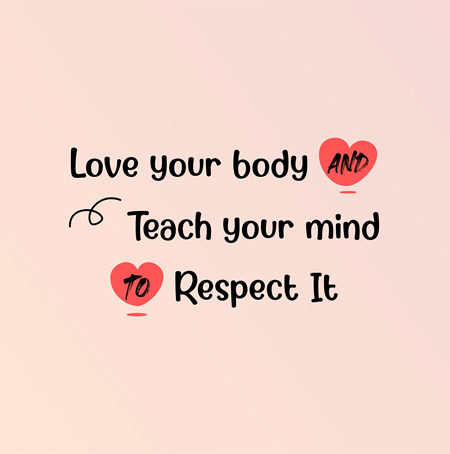 Food filled Jen’s emptiness.
Food filled Jen’s emptiness.
Jen* had a problem with binge eating, secretly eating at night, and hiding the containers. She maintained a healthy diet throughout the day. But while her husband slept at night, she ordered several entrees and would eat until she was in physical pain. Sometimes, she would throw up.
Through our work together, we discovered that Jen spent many nights alone as a child because her single mother worked full-time at night. Jen found comfort in food when lonely and scared and used it to fill the void. That habit continued into adulthood.
As Jen became more aware of her fears, she could sit with her discomfort without resorting to eating. She would still get up at night, but rather than ordering food, she would write in her journal about how she felt before ordering food.
Eventually, she felt strong enough to include her husband in our sessions. He was supportive and encouraged her to wake him up when she needed reassurance, providing the support she lacked as a child.
Jen continued to binge about once a month, following her old pattern, but that compulsion started to recede. She told me that nightly eating was no longer necessary because that empty feeling was gone.
Jessica’s past impacted her body image.
Jessica* was prone to skipping meals and restricting her eating. She felt her body was “wrong” and believed people would only love her if she were skinny. Jessica ignored her hunger cues for so long that her body ceased to tell her when it was hungry. Her only clue was when she would become light-headed or pass out.
I found Jessica to be an incredibly thoughtful and generous person. Throughout her childhood, her father drank heavily and was hot-tempered, calling her useless, fat, lazy, and other hurtful names. Everything was Jessica’s fault – an imperfectly clean house, a crying brother, and a lack of money. These accusations made Jessica believe that maintaining order and balance and caring for others was more important than taking care of herself.
As an adult, she continued to play the role of “fixer” with her family, friends, and coworkers, meeting every request no matter how outlandish and unable to set boundaries. We started practicing how to say “no” and determine when a request seemed wrong. I supported Jessica in composing text messages to people who overstepped until she learned to set boundaries independently.
Once Jessica felt she had more control over her life and time, she didn’t feel as driven to control her food and body. Over time, her natural hunger cues returned, and she could honor them by eating when she was hungry.
 Fitness to Steve was the only sign of healthiness.
Fitness to Steve was the only sign of healthiness.
Steve* started working out in high school and over time, being fit and healthy became a larger and larger part of his identity. Steve also wanted the people around him to be healthy, and he often suggested to his girlfriend and others what to eat to improve their health – creating irritation and arguments.
Workouts for Steve involved running before work and going to the gym at night for two hours. His girlfriend complained about their lack of time together, and he lost friends from neglect. When he did socialize, his dietary restrictions made it difficult. At his girlfriend’s encouragement, Steve came to see me about his obsession with working out.
Through our sessions and conversations, Steve revealed that his father died from complications of diabetes, and this terrified him. As Steve worked with me and those close to him, he learned that his focus on protecting those he loved pushed them away, harming his relationships. He gained balance for himself and realized that making time for relationships is also part of a healthy life.
With the weight of responsibility off Steve’s shoulder, he started respecting other people’s food choices, thus reducing conflicts. Steve now has a well-balanced life. He still works out, eats healthy food, and can find something to eat on nearly any menu.
Disordered eating has an underlying explanation.
Do you want to hear a secret? Being preoccupied with food and body weight is rarely about food, weight, or eating. That may sound hard to believe, but we use food to project onto other issues. As you can see from the stories above, food is often a smoke screen for something else that is going on in our lives.
I work with my clients to help them discover what causes their obsession with food. Part of our discussions pertains to food neutrality and intuitive eating. Food neutrality means that food isn’t good or bad. You aren’t bad because you ate a piece of cake and you don’t need to work out to earn your food. Rather than forcing yourself to follow dietary rules, you’ll learn to listen to your body.
Intuitive eating means that rather than obsessing over the number of calories or nutrients in your food, you’ll learn to check in with how you feel physically and emotionally before, during, and after you eat. With practice, you’ll discover that your body knows what it needs to feel good, allowing you to develop a trusting relationship with your body.
Deprivation can lead to binge eating. Intuitive eating means permitting yourself to eat whatever you want while monitoring your body’s response. Through time, you will start to crave the foods that make you feel energized and alive rather than lethargic and irritable.
Whether you’re struggling with binging, purging, eating too little, overeating, or are an overly “picky” eater, if food obsessions cause problems in your life and relationships, we can find the answer together.
 Learn to love and care for your body.
Learn to love and care for your body.
How much time have you spent hating your body, analyzing every inch, dressing strategically to hide your “flaws,” avoiding mirrors, photos, and bathing suits? If freed from hating your body, what else could you have done with all that time, energy, and brain power?
We live in a culture that encourages us to think our bodies aren’t good enough, as the media bombards us with “perfect” looking people. We may know this isn’t real because most people don’t look like that – even models are airbrushed and photo-shopped. But somehow, the pressure remains, causing us to feel not good enough.
We’ll work together to help you refocus on the health and functionality of your body rather than how it looks. Your body is your vehicle through life, allowing you to do AMAZING things. We’ll help you surround yourself with people and media that support a positive body image and reduce or eliminate any external sources that encourage negative thoughts.
If you want a therapist to help you fit into a specific size or stick to a particular diet or exercise plan, then sorry, I’m not the right fit for you. If you want to learn how to love and care for your body as it is while engaging in enjoyable movement and healthy eating, please call me today!
*Names changed to protect client confidentiality.

